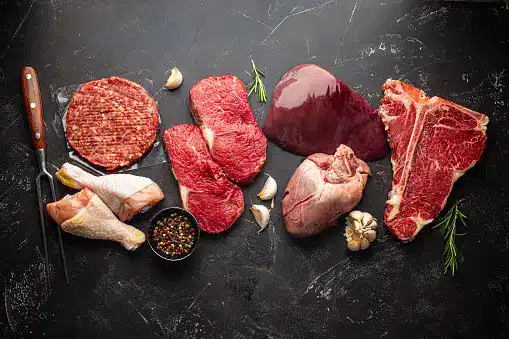Usually, during Eid Al Adha, people overindulge and gather with family and friends to feast on rich meat dishes and desserts. Karahi, Namkeen Ghost, Pulao, Kebabs, Roast Lambs, Mutton/Beef Biryani, and Nihari are the most popular dishes prepared across Pakistan. However, throughout the three days of Eid, individuals are advised to be careful about what they cook and consume by nutritionists and other healthcare professionals.
Following are some methods which you can opt for taking care of your healthy diet:
- Choose healthier ways to prepare beef, such as stewing, pan-broiling, or baking. In a pressure cooker, the meat can also be cooked on low heat for an extended period with little to no oil.
- Choose grilled or baked dishes while you are visiting someone else rather than fried kebabs or other fried delicacies.
- Portion control is important to prevent consuming too much protein and fat. A quantity of well-done meat should be combined with yoghurt, other vegetables, and a green salad without a creamy dressing.
- Lean beef or chicken are two additional options for meat that has less fat.
- Maintain a three-meal schedule and opt for lighter or smaller-sized snacks. People who have diabetes or high blood pressure should take extra care when eating chocolate or desserts. Instead, consume some fruits, which are high in fiber and will keep you satisfied.
- Drink some unsweetened green or black tea after a substantial meal to speed up your metabolism instead of having soft drinks.
- Try eating light, healthy home-cooked meals after Eid, such as stir-fried vegetables, simple brown rice, lentils, etc.
- Consider the meaning of Eid ul Adha and the food on your plate for a moment. Eat with thankfulness and moderation, be aware of your decisions, and pay attention to your body.
- Include physical activity in your daily routine. After the main course, go for a walk or play sports with family and friends. This can improve digestion, burn calories, and lower the risk of overeating.
Though Eid ul Adha is a time to indulge in delectable food, it’s important to keep a balanced eating strategy. By putting your health and wellbeing first, you may take part in the festivities without overindulging. The sharing of meat on Eid ul Adha is very significant because Muslims all around the world remember Prophet Ibrahim (Abraham)’s willingness to sacrifice his son and the act of Allah supplying a lamb in his place.
It’s important to remember that, even while giving away meat is a traditional Eid ul Adha custom, the focus is on encouraging generosity, unity, and compassion for others, especially the less fortunate. During this auspicious occasion, the distribution of sacrificed meat serves as a reminder of the value of caring for the community and sharing.


